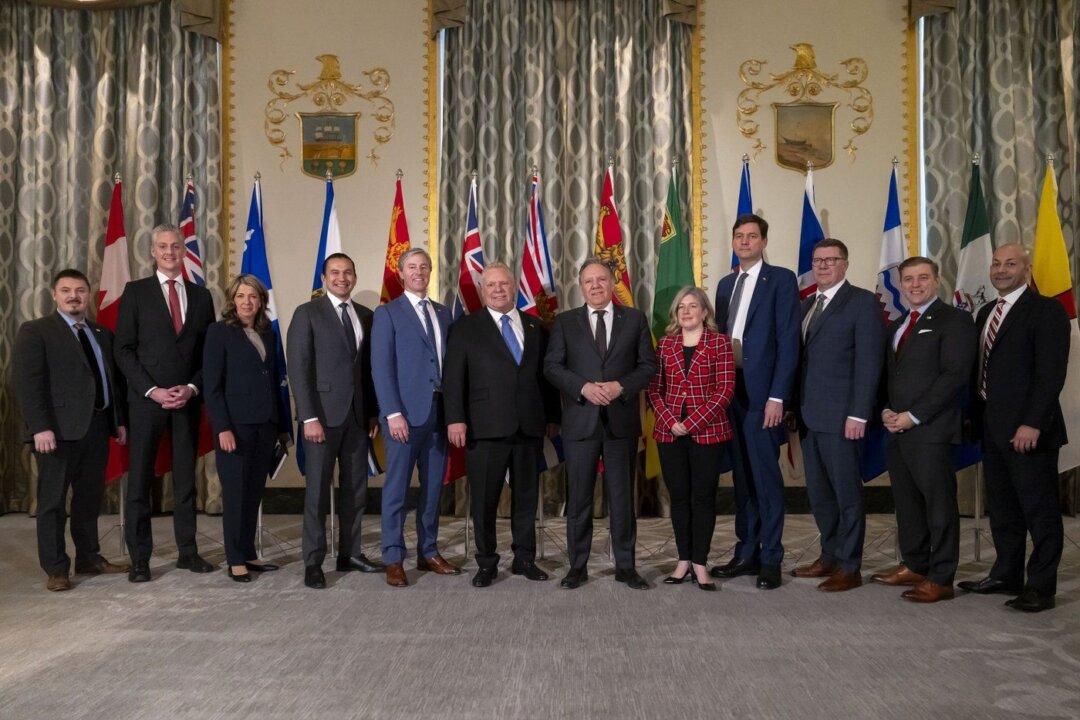Canada’s premiers visited the White House on Feb. 12 as part of a diplomatic mission in Washington, D.C., to engage with U.S. officials and industry leaders in an effort to prevent tariffs on Canada.
Ontario Premier Doug Ford, who is leading the joint mission, said U.S. officials are getting a “better understanding” of the potential negative impact of tariffs on both countries, and that he’s sure the message is reaching Trump.





